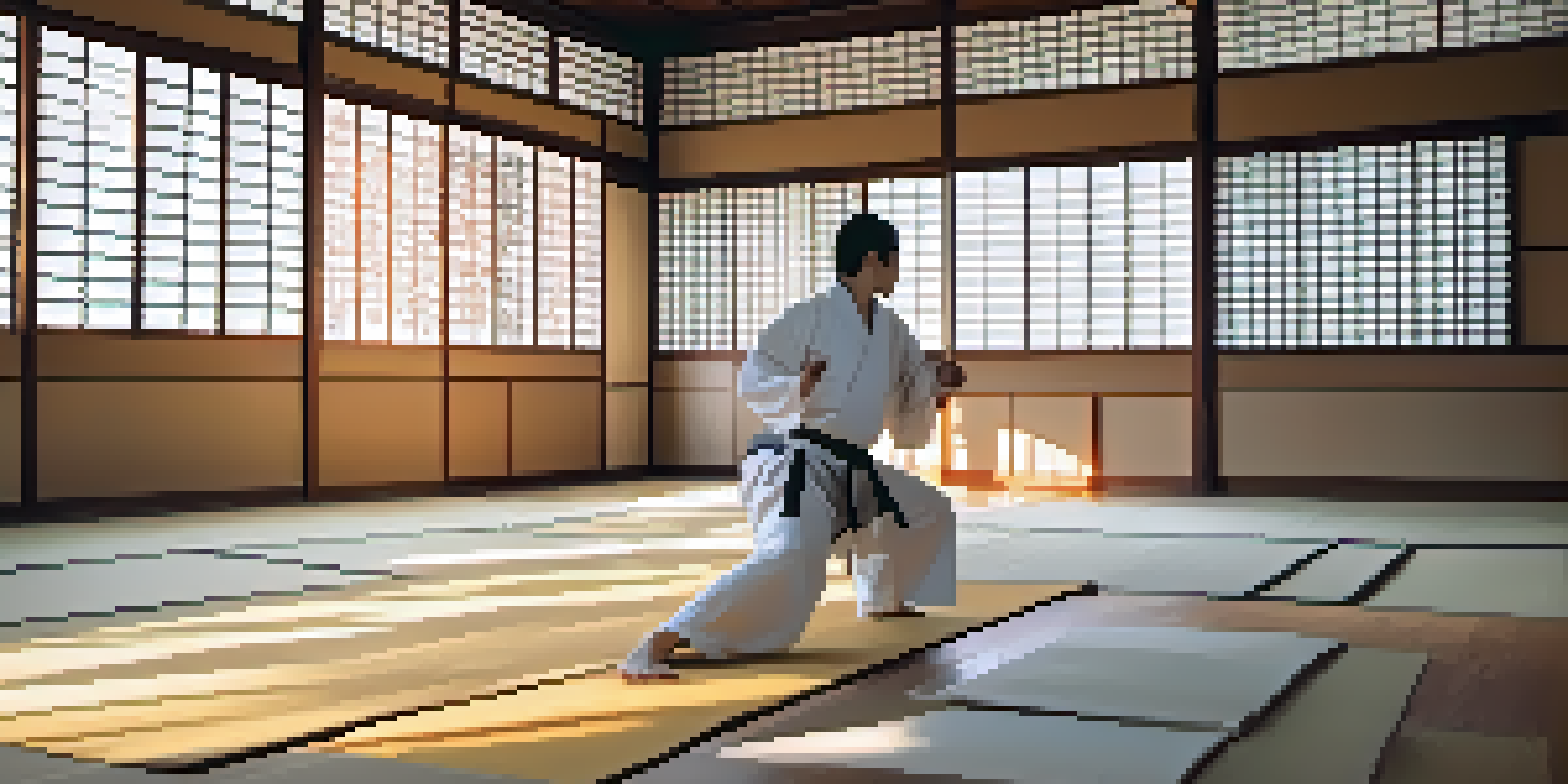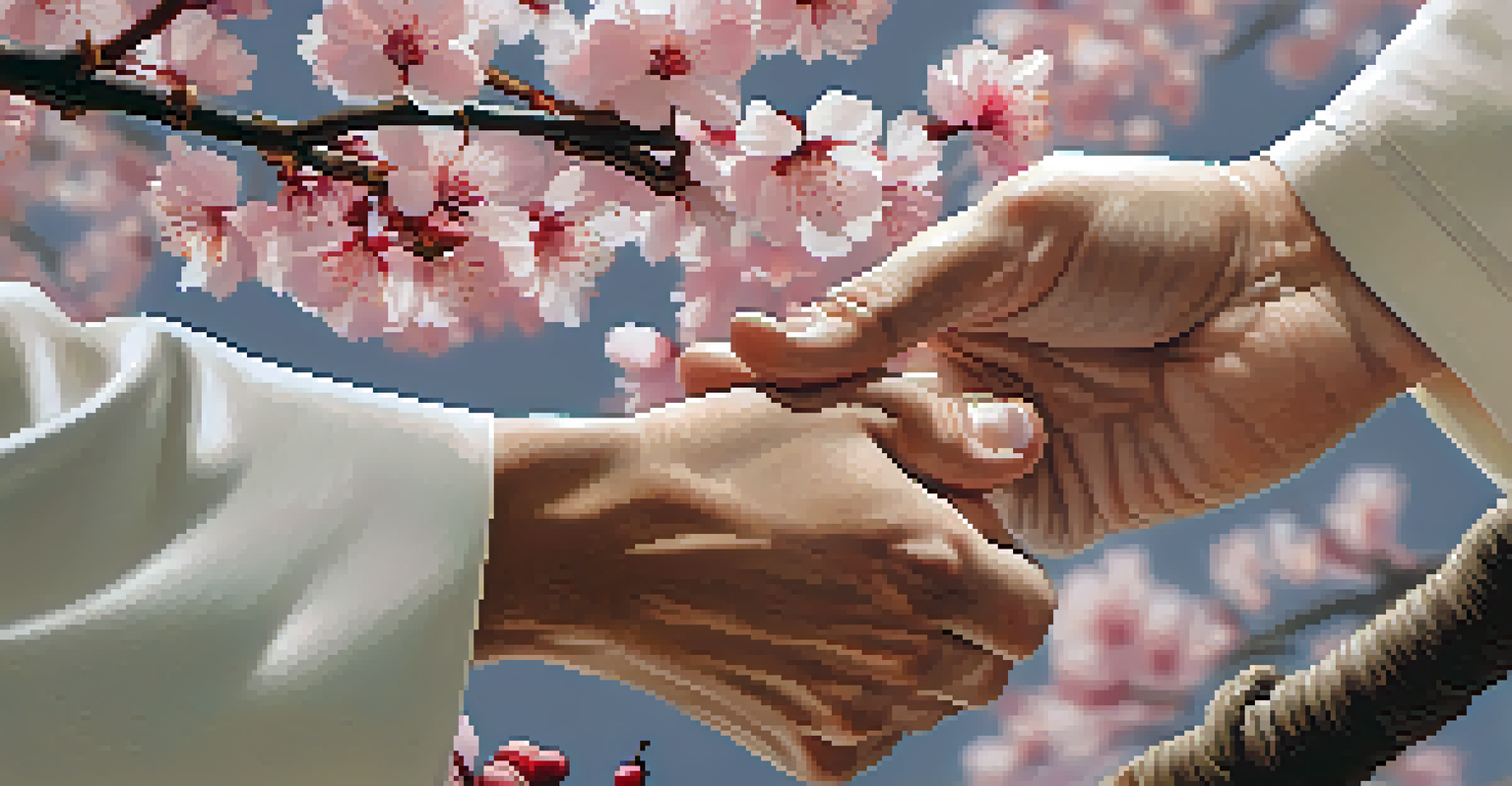Karate and Zen: The Spiritual Philosophy Behind the Techniques

Understanding Karate: More Than Just Physical Combat
Karate is often perceived as a physical discipline focused on striking techniques. However, it encompasses much more than mere self-defense. At its core, karate is a way of life, integrating mental and spiritual growth alongside physical prowess.
Karate is a form of self-defense that teaches you how to protect yourself. But it also teaches you how to respect others and yourself, and how to lead your life with integrity.
Practitioners learn to channel their energy through rigorous training, fostering a deeper connection between mind and body. This holistic approach encourages individuals to refine not only their techniques but also their character and discipline.
Through the lens of karate, one can appreciate the importance of balance in life. Just as a well-executed kick requires focus and precision, achieving harmony in daily life demands similar dedication and mindfulness.
Zen Philosophy: The Art of Mindfulness and Presence
Zen philosophy emphasizes the practice of mindfulness, urging individuals to be fully present in each moment. This concept resonates deeply within karate, where each movement is an opportunity to cultivate awareness and intention.

By practicing Zen principles, karate practitioners learn to quiet their minds, allowing them to react instinctively and effectively during training or combat. This mental clarity often leads to improved performance and deeper satisfaction in their practice.
Karate: A Holistic Life Approach
Karate is not just about physical techniques; it integrates mental and spiritual growth, emphasizing character development alongside physical prowess.
Furthermore, mindfulness in karate extends beyond the dojo. It encourages individuals to carry a sense of calm and focus into their everyday lives, fostering resilience in the face of challenges.
The Connection Between Karate Techniques and Zen Practice
The movements in karate can be likened to the flowing forms of Zen meditation. Each technique, whether a punch or a block, requires concentration and a rhythmic flow, similar to the way breath is managed during meditation.
The mind is everything. What you think you become.
As students advance in their training, they discover how to synchronize their physical actions with their mental states. This connection transforms their practice into a meditative experience, where every strike becomes a form of expression.
This fusion of movement and mindfulness not only enhances technical skill but also deepens the emotional and spiritual experience of practicing karate.
Breathing Techniques: The Bridge Between Body and Mind
Breathing plays a crucial role in both karate and Zen practices. In karate, proper breathing techniques help regulate energy and improve focus during execution of techniques.
Similarly, Zen teachings emphasize the importance of mindful breathing as a means to anchor oneself in the present moment. This dual emphasis on breath creates a powerful synergy that enhances both physical and mental performance.
Mindfulness Enhances Karate Practice
Zen philosophy encourages mindfulness, allowing karate practitioners to achieve mental clarity and focus during their training and daily lives.
By integrating breath control into their training, karate practitioners cultivate a deeper sense of calm, allowing them to maintain composure under pressure and improve overall effectiveness.
Meditation: A Key Component of Karate Training
Meditation is often overlooked in martial arts training, yet it serves as a foundational practice for mastering oneself. In karate, meditation helps practitioners center their thoughts and visualize their goals.
Through regular meditation, karate students develop patience and clarity, essential traits for not only martial arts but life itself. This reflective practice allows them to assess their progress and adapt their training accordingly.
Incorporating meditation into karate routines fosters a deeper understanding of one's motivations, fears, and strengths, ultimately leading to personal growth.
The Role of Respect and Humility in Karate and Zen
Respect and humility are integral values in both karate and Zen philosophy. Practitioners are taught to honor their instructors, peers, and the art itself, fostering a supportive and respectful community.
This culture of respect nurtures humility, reminding students that mastery is a continuous journey, not a destination. Such attitudes encourage collaboration and learning from others, enriching the overall practice.
Respect and Humility in Training
Respect and humility are essential values in karate and Zen, fostering a supportive community and reminding practitioners that mastery is a continuous journey.
As students embrace these values, they cultivate a sense of gratitude for their training and experiences, enhancing their connection to karate and Zen.
Transformative Power: How Karate and Zen Shape Lives
The integration of karate and Zen philosophy can lead to transformative experiences for practitioners. As they develop discipline, focus, and resilience, they find these qualities spilling over into all aspects of life.
Many individuals report increased confidence and emotional stability, as the lessons learned on the dojo floor translate into personal and professional success. This transformation often inspires a deeper commitment to both karate and Zen practices.

Ultimately, the journey through karate and Zen becomes a pathway to self-discovery, empowering individuals to become the best versions of themselves.